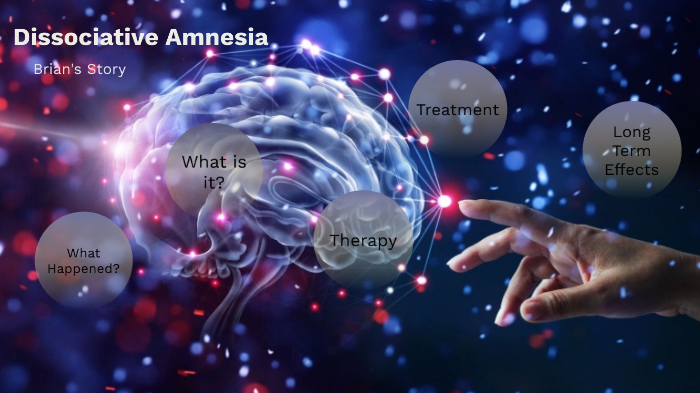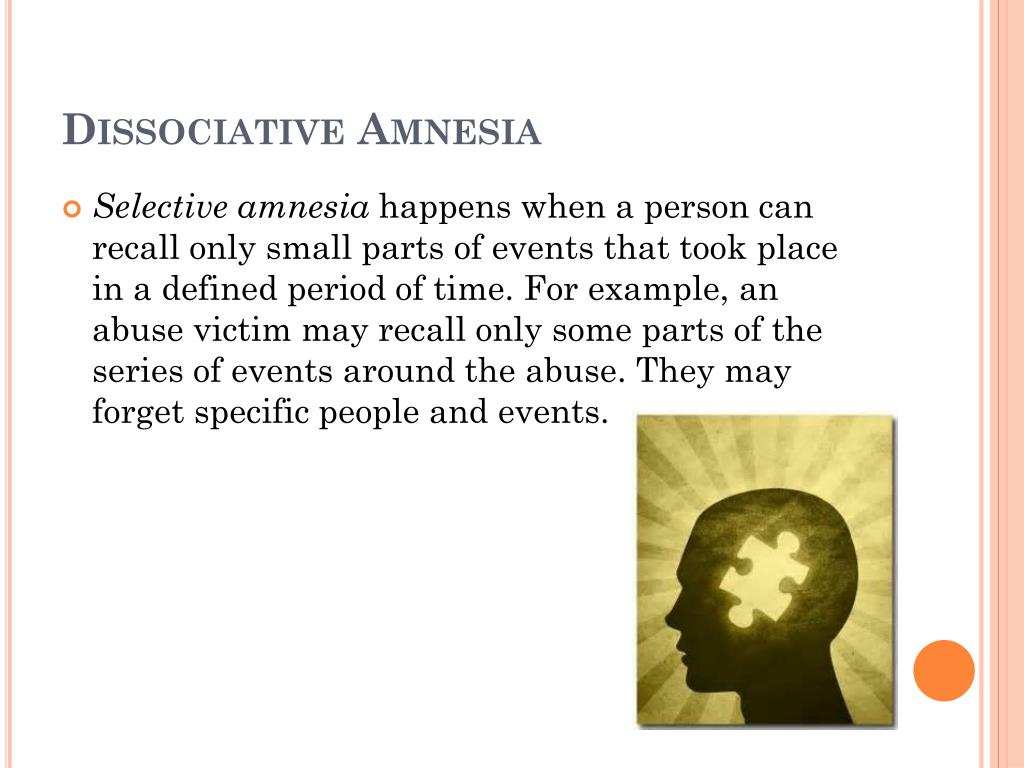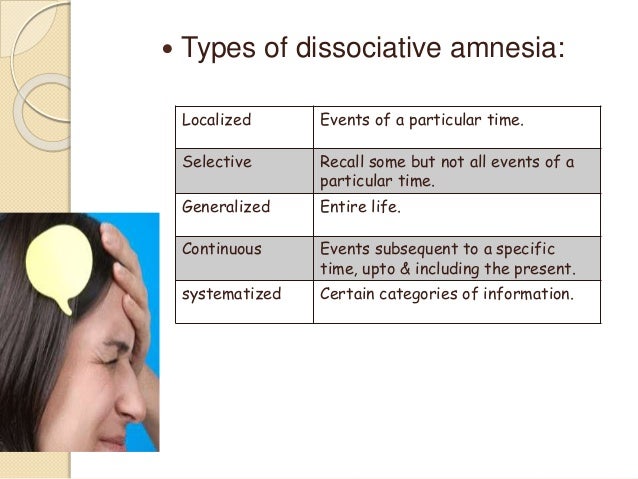

Psychiatric Assessment of specific events Clinically, it is usually subdivided into immediate, recent, and remote memory.

Psychiatric Assessment impairment that primarily affects autobiographical information, often following stressful or traumatic events Types of memory Memory Complex mental function having four distinct phases: (1) memorizing or learning, (2) retention, (3) recall, and (4) recognition. Psychotherapy tailored to recovering lost memories in a safe fashion.ĭissociative amnesia is a potentially reversible memory Memory Complex mental function having four distinct phases: (1) memorizing or learning, (2) retention, (3) recall, and (4) recognition. The treatment approach is often individualized, depending on the psychiatric condition(s) or circumstance. Management involves psychotherapy Psychotherapy Psychotherapy is interpersonal treatment based on the understanding of psychological principles and mechanisms of mental disease. Psychiatric Assessment about certain life events that are usually traumatic and unpleasant. The most common type is the localized loss of memory Memory Complex mental function having four distinct phases: (1) memorizing or learning, (2) retention, (3) recall, and (4) recognition. Dissociative amnesia can be subclassified as generalized versus localized or continuous versus systematized. Psychiatric Assessment gaps in response to stressful events.
#Dissociative amnesia pro#
Students: Educators’ Pro Tips for Tough Topicsĭissociative amnesia is a dissociative disorder characterized by temporary memory Memory Complex mental function having four distinct phases: (1) memorizing or learning, (2) retention, (3) recall, and (4) recognition.

Fundamentals of Nursing: Clinical Skills.Psychotherapy may be necessary when the amnesia is due to a psychologic reaction. The recovery is often gradual, the memory slowly reclaiming isolated events while others are still missing. In another form, only certain isolated events are lost to memory.Īmnesia victims usually have a good chance of recovery if there is no irreparable brain damage. When amnesia results from a single physical or psychologic incident, such as a concussion suffered in an accident or a severe emotional shock, the victim may forget only the incident itself the victim may be unable to recall events occurring before or after the incident or the order of events may be confused, with recent events imputed to the past and past events to recent times. Rarely is the memory completely obliterated. The technical term for this is repression. Psychologic factors may also cause amnesia a shocking or unacceptable situation may be too painful to remember, and the situation is then retained only in the subconscious mind. Amnesia is usually the result of physical damage to areas of the brain from injury, disease, or alcoholism.


 0 kommentar(er)
0 kommentar(er)
